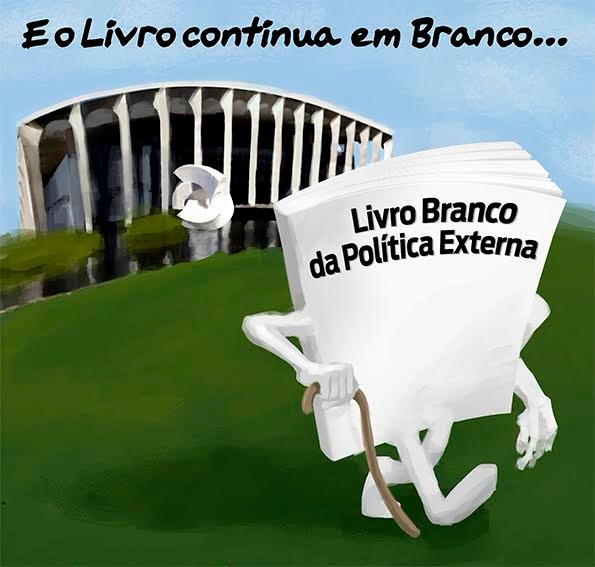Still blank
Foreign Ministry breaks pledge and delays publication of Foreign Policy White Paper by a year

The Ministry of Foreign Relations will wrap up 2015 without publishing the Foreign Policy White Paper – a public document containing the principles, priorities and outlines of Brazilian international policy. Over the course of his mandate, the former Foreign Minister Alberto Figueiredo promised to complete the process of drafting the White Paper by December 2014.
In January of this year, under the administration of the new Foreign Minister, Mauro Vieira, Conectas filed a Freedom of Information request to discover the whereabouts of the document and the official time frame for its publication. In March, the ministry responded that it was “conducting internal consultations concerning a preliminary version” and that the next stages of the project would be defined after these consultations (click here to read the full response).
Besides adding more transparency to the activities of the Foreign Ministry, the White Paper has the potential to expand the channels of interaction between diplomacy and society, improving the knowledge and public monitoring of the work conducted by the ministry. In Brazil, the Ministry of Defense has a similar document, which is provided by law and was published in 2012.
Read more
Participatory process
Conectas and other organizations working to ensure the prevalence of human rights in foreign policy (a principle established in article 4 of the Brazilian Constitution) have been exerting pressure for the drafting process of the document, announced by the former minister Figueiredo in 2013, to be as open as possible to participation.
Between February and April 2014, the Foreign Ministry organized a series of meetings called “Dialogues on Foreign Policy” to step up the debate between government and society on Brazil’s role in the world and to assist with the preparation of the White Paper.
According to Camila Asano, coordinator of the Foreign Policy program at Conectas who was present at one of these meetings, the initiative was inadequate. “The ministry did not hold open public consultations, either with Congress or more broadly with society. In terms of participation, the process has fallen far short of what is needed,” she said.
Over the course of 2015, the Brazilian Foreign Policy and Human Rights Committee sent two letters to the Foreign Ministry calling for the creation of broad consultation mechanisms. Click here and here to read the documents in full.
“We are talking about an essential document for guaranteeing the transparency and consistency of Brazil’s international action,” said Asano. “Each day of delay increases the distance between the Foreign Ministry and society, compounding the misguided and dangerous perception that foreign policy is not public policy,” she concluded.






